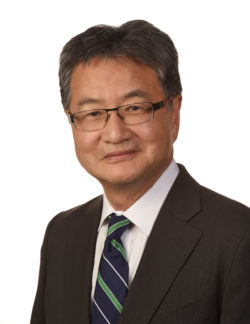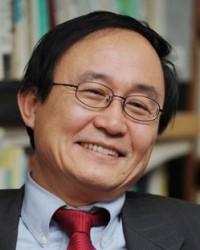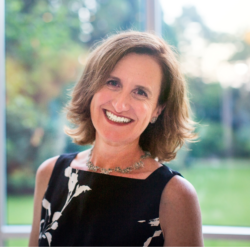SOLD OUT: North Korea: What Now?
December 14th, 2018 12:00PM -2:00PM
After months of escalating tension between the United States and North Korea, President Trump and Kim Jong-Un held a historic meeting in Singapore, where they signed a joint statement pledging to establish new relations between the two countries, build lasting peace and work towards complete denuclearization of the Korean Peninsula. But how real are these goals? Can diplomacy work with North Korea? Join the World Affairs Council and the Center for Korea Studies, Jackson School of the University of Washington for a lunch discussion with Ambassador Joseph Yun, former United States Special Representative for North Korea Policy and Deputy Assistant Secretary for Korea and Japan, on what to expect in the U.S.-North Korea relationship, the future of North Korean denuclearization, and achieving peace on Korean Peninsula.
This event is a part of the Annual Korean Peninsula Forum, sponsored by the Consulate General of the Republic of Korea in Seattle.
Event Summary
Ambassador Joseph Yun joined the World Affairs Council and the Consulate General of the Republic of Korea in Seattle on December 14th for a sold-out discussion on the future of U.S. relations with North Korea. Joined by panelist Professor Yong-Chool Ha and Jacqueline Miller of the World Affairs Council, the group had an important discussion on the progress that has been made with North Korea and what the U.S. needs in order to see denuclearization of the country.
After a welcome from the Consulate General of the Republic of Korea as well as the University of Washington Center for Korea Studies, Ambassador Yun gave some remarks on the current state of North Korea. He stressed the lack of trust and communication between the United States and North Korea and the need for confidence building measures to open up dialogue for negotiations. With regards to denuclearization, both countries have very different goals: the U.S. wants complete denuclearization while North Korea fears its own security if forced to give up their nuclear weapons. Whether or not North Korea does denuclearize, Ambassador Yun stated that he believes the process will long outlast the Trump administration and could take up to ten or even twenty years. Without open communication and reconciliation between North and South Korea, progress will not be made.
Professor Yong-Chool Ha took some time to speak, saying he agrees with Ambassador Yun that the U.S. needs to be more patient in negotiations. He argued the North Koreans are very rational thinkers, which makes negotiations difficult and drawn out. Nuclear weapons bring a political dilemma to negotiations, but Ha stated that he is cautiously optimistic about the progress between the U.S. and North Korea.
The moderated discussion began with an analysis of the change in relations with North Korea in the last six months. Both Ambassador Yun and Professor Ha stated that the summit between the U.S. and North Korea was a major success solely based on the fact that it occurred. Ambassador Yun added that the halt in nuclear weapons testing and demolishment of even a few testing sites is a major feat. The situation between both countries is much better, but both stressed that patience is still key. When asked about North Korean goals for the summit, Ambassador Yun stated that the country wants legitimacy. North Koreans want to be seen on the same stage as the United States and need the acknowledgement of the nuclear weapons they possess. Professor Ha chimed in saying that the new challenge North Korea faces is finding a trade off between nuclear weapons and economic benefits.
The discussion then moved to the discontinuation of military exercises on the Korean Peninsula and the possibility of progress being made at the expense of South Korea. Ambassador Yun stated that he did not believe that progress was detrimentally impacting South Korea, as the dialogue between North and South Korea has been very rich. Both countries have been working to shut down guard posts and have made progress towards denuclearization and declining tensions. Professor Ha added that the issue is larger than between only North and South Korea. What is most worrisome is that the U.S. has a lack of vision in its dealings with North Korea which could lead to confusion. Ambassador Yun brought up the point that visions are difficult because North Korea and the United States both have very different objectives that will realistically not match up. North Korea recognizes that they are far behind many countries developmentally, and sees the slim likelihood that they can catch up in the near future. Both speakers stressed their cautious optimism going into possible future negotiations with North Korea, but stressed the importance of patience on successfully negotiating to denuclearization.
About the Speaker

Ambassador Joseph Yun is senior adviser to the Asia Program at the United States Institute of Peace. As former US Special Representative for North Korea Policy, he is recognized as one of the nation’s leading experts on relations with North Korea, as well as on broader US-East Asian policy. His 33-year diplomatic career has been marked by his commitment to face-to-face engagement as the best avenue for resolving conflict and advancing cross-border cooperation.
Ambassador Yun previously served as the Special Representative for North Korea Policy from October 2016 to May 2018. He played an instrumental role in reopening the “New York channel,” a direct communication line with officials from Pyongyang. During this time, he concurrently held the position of Deputy Assistant Secretary of State for Korea and Japan, responsible for all aspects of bilateral relations with the two treaty allies. He also served as U.S. Ambassador to Malaysia and as Principal Deputy Assistant Secretary for East Asian and Pacific Affairs and led efforts to normalize diplomatic relations with Myanmar.
His previous assignments also included Deputy Assistant Secretary for Southeast Asian Affairs, Counselor for Political Affairs in the U.S. Embassy in Seoul, Economic Counselor in the U.S. Embassy in Bangkok, as well as earlier assignments in South Korea, Indonesia, Hong Kong, and France. Ambassador Yun is the recipient of a Presidential Meritorious Service Award, four Superior Honors Awards, and nine Foreign Service Performance Awards from the U.S. State Department.
Ambassador Yun holds degrees from the London School of Economics and the University of Wales. He speaks Korean, Indonesian and French. He is married to Dr. Melanie Billings-Yun. They have one son, Matthew.
About the Panelist
 Yong-Chool Ha is Korea Foundation Professor of Korean Social Science. His primary academic interests have been comparative politics and society with a particular focus on late coming nations (Korea, Japan, Prussia, China and the Soviet Union), Soviet and Russian politics, Russian Far East Korean domestic and international politics, inter-Korean Relations and East Asian regional politics and international theories in East Asia.
Yong-Chool Ha is Korea Foundation Professor of Korean Social Science. His primary academic interests have been comparative politics and society with a particular focus on late coming nations (Korea, Japan, Prussia, China and the Soviet Union), Soviet and Russian politics, Russian Far East Korean domestic and international politics, inter-Korean Relations and East Asian regional politics and international theories in East Asia.
About the Moderator

Jacqueline Miller is president and CEO of the World Affairs Council of Seattle. She also serves on the Mayor’s International Affairs Advisory Board; is a board member and chair of the membership committee of Global Ties U.S.; is a member of the Civic Council for UW’s Master of Arts in Applied International Studies (MAAIS) program; and serves on the Washington State Advisory Committee for the U.S. Global Leadership Coalition. She is also a member of the Council on Foreign Relations. She previously held senior positions in policy organizations in Washington DC, including the Council on Foreign Relations and the Center for Strategic and International Studies, where she was deputy director of the Russia and Eurasia program. She has been a commentator for various news sources, including the New York Times, the BBC, CBC, and Voice of America. Her honors include being named a Truman Security Fellow as well as receiving a Foreign Language Area Studies Fellowship (FLAS) for Russia. She was also an International Research and Exchanges Board (IREX) Visiting Scholar in Kyrgyzstan.
The Boeing Company is an underwriting sponsor of all World Affairs Council Community Programs.